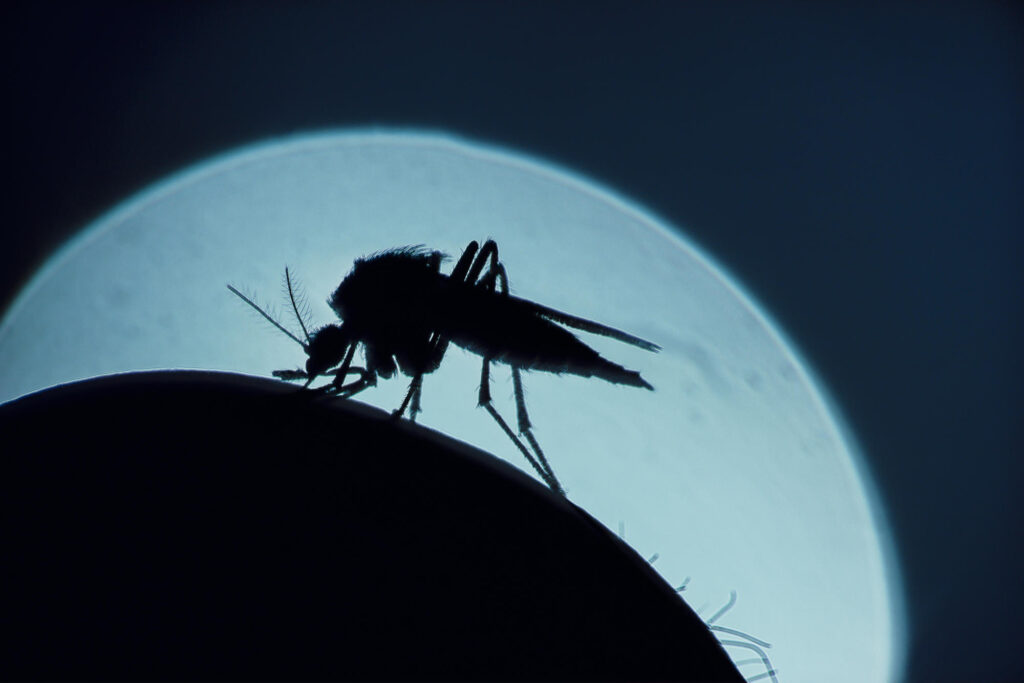MRNA Tech that we use against Covid can help us finally defeat malaria

MRNA Tech that we use against Covid can help us finally defeat malaria
The scientific community response to Covid-19 does not have Herculean. Researchers have developed several vaccines that are very effective against new viruses in less than a year – with more on the road – and we have mRNA-based technology to thank. The discovery, instead of injecting a semi-die virus into ourselves, we can deceive our body to produce an immune response by inciting it to produce protein fragments has become a revolution for the field of immunology. Because the level of vaccination for the current pandemic continues to rise, the medical community looks forward to change this strong genome weapon towards a myriad of other deadly diseases. And they are very close to have one for malaria.
“The vaccine field has been transformed forever and forever advanced because of Covid-19,” Dr. And Barouch, Director of the Center for Virology and Vaccine at Harvard Medical School, told AAMC in March.
According to the Mayo clinic, around 290 million people are infected with malaria every year and at least 400,000 people die from this disease every year – especially young people, parents and weak – making it the most extensive parasitic disease in the world. Symptoms involve “attacks’ ongoing cycles – shivering and shivering followed by fever followed by cold followed by fever.
“A safe, effective, affordable vaccine can play an important role in defeating malaria,” said Dr. Robert Newman, Director of WHO’s Global Malaria Program said in 2013. “Apart from all countries progress has recently been made, and although there is important innovation in Diagnostics, drugs and vector control, the global load of malaria remains high that is not acceptable. “
Researchers have been looking for vaccines for malaria almost since they were first confirmed in 1897. However, progress has occurred slowly and the reason is, “Multiple and living in the complexity of the parasite, which expresses more than 5,000 proteins so far. Stages, complicated interactions between parasitic biology and host immunity, lack of adequate resources and lack of effective global cooperation, “wrote Giampietro Corradin and Andrey Kambava, respectively at Lausanne University and University of Montpellier, in the journal of vaccine review experts in 2014.
But new research from Oxford University is set to change the dynamics in his ear. In a report published for the April edition of Lancet, Mehreen Datoo, the author of the study and Roman clinical research at Oxford’s Jenner Institute, and his team revealed that they had developed a vaccine candidate who showed the efficacy of 77 percent after 12 months inoculation. At least, it was done as part of the IIB phase trial, which involved more than 450 children, aged 5-17 months, living in Burkina Faso. Dubbed the Malaria Vaccine R21 / Matrix-M, this marked the first time that potential treatment for this disease has fulfilled or exceeded the purpose of the road map of the Malaria vaccine organization of the world health organization 45 percent efficacy.
“Malaria is one of the main causes of childhood mortality in Africa,” Professor Charlemagne Ouédraogo, Minister of Health Burkina Faso, told Oxford News in April. “We have supported trials from various new vaccine candidates in Burkina Faso and this new data shows that a new malaria vaccine license that is very useful can occur in the coming years. It will be a very important new tool to control malaria and save many lives. . ‘
The results are very encouraging in fact, the researchers (in coordination with Novavax) have begun to recruit for phase III trials with 4,800 children, aged 5-36 months, in four African countries. And we have MRNA technology to thank you.
The response from the scientific community to Covid-19 has nothing less than Herculean. The researchers have developed several extremely effective vaccines against the new virus in less than one year – with more on the way – and we have a technology based on the mRNA to thank. The discovery which, instead of injecting semi-dead viruses into ourselves, we can guide our body to generate an immune response by inculcating it to produce fragments of protein, has been a revolution in the field of immunology . As vaccination rates for the current pandemic continue to climb, the medical community plans to turn this powerful genomic weapon against the myriad of other deadly diseases. And they are already very close to having one for malaria.
“The vaccination field has been transformed forever and always advanced because of Covid-19,” Dr. Dan Barouch, Director of the Center for Virology and Vaccination Research at Harvard Medical School, “said The AAMC in March.
According to the Mayo Clinic, about 290 million people are infected with malaria each year and at least 400,000 people die of the disease each year – mainly young children, seniors and infirm – by doing the most invasive parasite disease of the world. The symptoms involve “cyclic attacks” ongoing and chills and chills followed by fevers followed by chills followed by fevers.
“Safe, effective and affordable vaccines could play a crucial role in malaria defeat,” said Dr. Robert Newman, Director of the WHO World Malaria Program in 2013. “Despite all recent countries of progress have Done, and despite significant innovations in diagnostics, drugs and vector control, the global burden of malaria remains unacceptably high. “
Researchers have sought a malaria vaccine almost since its first confirmation in 1897. However, progress has been slow and the reasons that are “multiple” and reside in the complexity of the parasite, which expresses more than 5,000 proteins during the course of His different life. Steps, the complex interaction between parasitic biology and host immunity, a lack of adequate resources and a lack of effective global cooperation, “wrote Giampietro Corradin and Andrey Kajava, professors from the University of Lausanne and The University of Montpellier, respectively, in the Journal Expert Review of Vaccines in 2014.
But new research on Oxford University serves to transform this dynamic into one’s ear. In a report published at the April number of Lancet, Mehreen Datoo, the study author and the clinical research of the Jenner Institute of Oxford and his team revealed that they had developed a vaccinal candidate who has demonstrated an efficiency of 77% after 12 months of inoculation. At least it was part of its IB phase tests, which involved more than 450 children aged 5 to 17 living in Burkina Faso. Nicknamed the Malaria Vaccine R21 / Matrix-M, this marks the first time that such potential treatment of the disease has reached or exceeded the objective of the World Organization’s malaria technology roadmap of the World Organization of the World Organization Health health of global health health of 75%.
“Malaria is one of the leading causes of infant mortality in Africa,” said Professor Charlemagne Ouédraogo, Burkina Faso’s Minister of Health, “Oxford News said in April. “We support tests from a range of new vaccine candidates in Burkina Faso and these new data show that the approval of a very useful new malaria vaccine may well occur in the coming years. This would be a very important new tool for controlling malaria and saving many lives. ‘
The results are so encouraging, researchers (in coordination with Novavax) have already begun to recruit for phase III tests with 4,800 children aged 5 to 36 months, in four African countries. And we have mRNA technology to thank for that.





